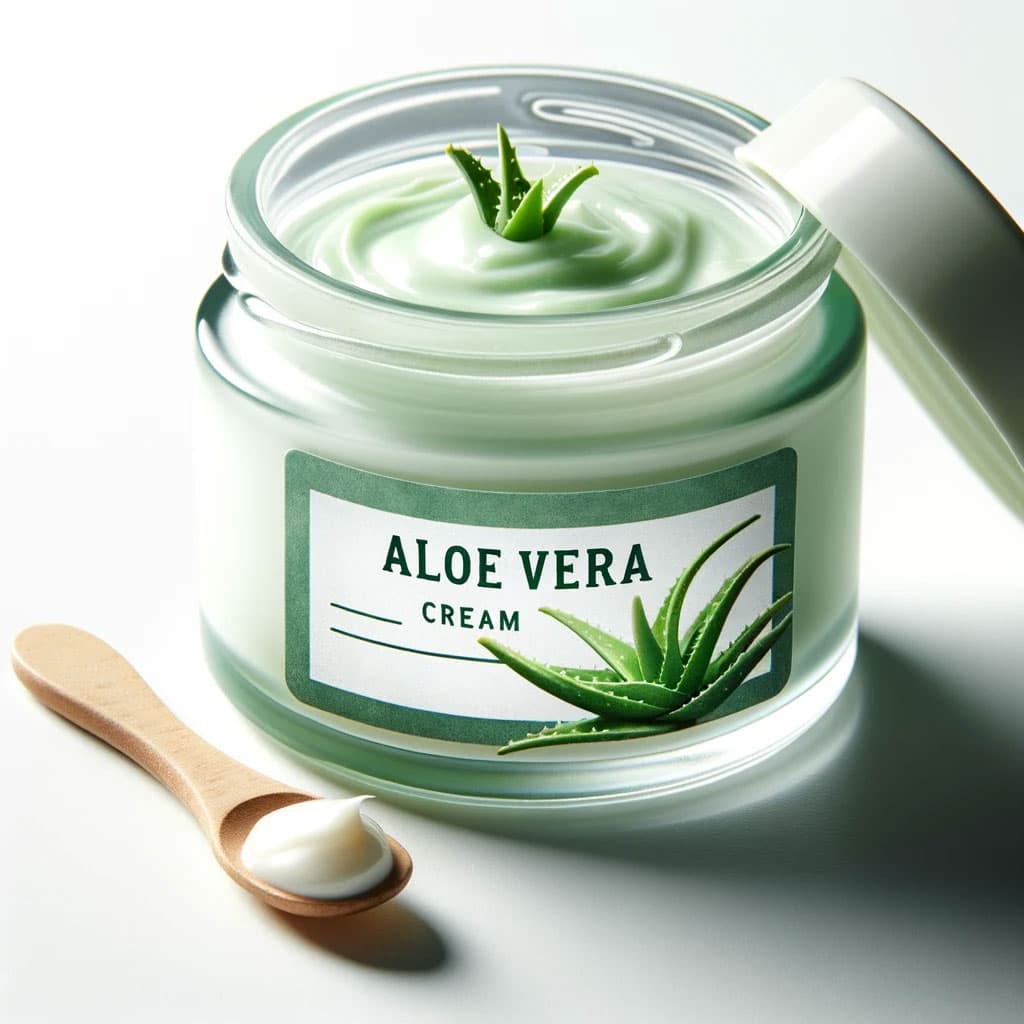Aloe vera has long been touted for its skin-soothing qualities, but its role in acne treatment is attracting increasing attention.
Due to its antibacterial properties, aloe vera gel can target the microorganisms that contribute to acne formation. Its anti-inflammatory effects further assist in reducing the redness and swelling associated with acne, enhancing its appeal as a natural remedy for skin issues.
The effectiveness of aloe vera in acne management is also attributed to its ability to promote skin wound healing. This property is beneficial for acne sufferers as it can help in the regeneration of skin damaged by acne or aggressive treatments.
Furthermore, the use of aloe vera in treating skin conditions, including acne, is backed by its reputation as a gentle ingredient suitable for a variety of skin types.
Aloe Vera and Acne: Properties and Mechanisms

Aloe vera’s popularity in skincare is largely due to its potential antimicrobial, anti-inflammatory, and wound-healing properties. These attributes contribute to its applicability in treating acne, a common inflammatory skin condition.
Antimicrobial Activity Against P. acnes
Aloe vera contains compounds with antiseptic properties that target Cutibacterium acnes (formerly Propionibacterium acnes), the bacteria implicated in acne pathogenesis.
Clinical trials have indicated that aloe vera gel shows efficacy in reducing acne bacteria, which can prevent the formation of new acne lesions such as comedones, papules, and pustules. The plant’s antimicrobial activity is pivotal in maintaining a balanced microflora, reducing the likelihood of infection and subsequent inflammation.
Anti-inflammatory Benefits in Acne Care
The anti-inflammatory effects of aloe vera help in mitigating the redness and swelling associated with inflammatory acne. It does so by interfering with the body’s inflammatory mediators that contribute to the clinical symptoms of acne.
By applying aloe vera gel, patients may experience relief from inflamed acne and an improvement in overall acne severity.
Aloe Vera for Wound Healing and Scarring
Post-acne scarring and hyperpigmentation, which affect quality of life, may be alleviated through the use of aloe vera. The gel’s wound-healing properties expedite the process of skin repair, reducing acne scars and the likelihood of post-inflammatory hyperpigmentation.
This is attributed to aloe vera’s antioxidant components that help in the renewal of the skin at the pilosebaceous unit while minimizing the risk of allergic reactions and promoting a healthy healing environment.
Clinical Use and Safety of Aloe Vera in Acne Management

Aloe vera has gained attention in dermatological use for its antibacterial and anti-inflammatory properties that may benefit acne management. This section discusses its topical application, safety profile, and integration into acne treatment regimens.
Topical Aloe Vera Formulations and Their Efficacy
Topical formulations including aloe vera are widely available, ranging from cleansers to creams and moisturizers.
The efficacy of aloe vera in treating acne lies in its ability to reduce inflammation and potentially inhibit the growth of Cutibacterium acnes, which contributes to acne vulgaris. Studies have found that when aloe vera is combined with conventional acne medications like tretinoin cream or benzoyl peroxide, it can enhance the overall therapeutic effect while mitigating irritation.
Systemic Safety and Adverse Effects
While topical use of aloe vera is generally considered safe, it’s crucial for users to be aware of potential adverse reactions. These can include mild itching or a burning sensation in cases of sensitive skin or allergic reactions.
However, compared to other potent treatments such as oral isotretinoin, which can have significant systemic effects, aloe vera’s safety profile is favorable for topical use in acne.
Integrating Aloe Vera into Acne Treatment Regimens
Aloe vera can be incorporated into various stages of an acne skincare routine, complementing both over-the-counter and prescription treatments.
Dermatologists often recommend using aloe vera-based gels or creams as a moisturizer post-application of topical retinoids or benzoyl peroxide to alleviate dryness and irritation.
This herbal medicine serves as a supportive treatment, helping to soothe the skin and reduce the inflammation associated with acne without substantially interfering with other acne medications.

